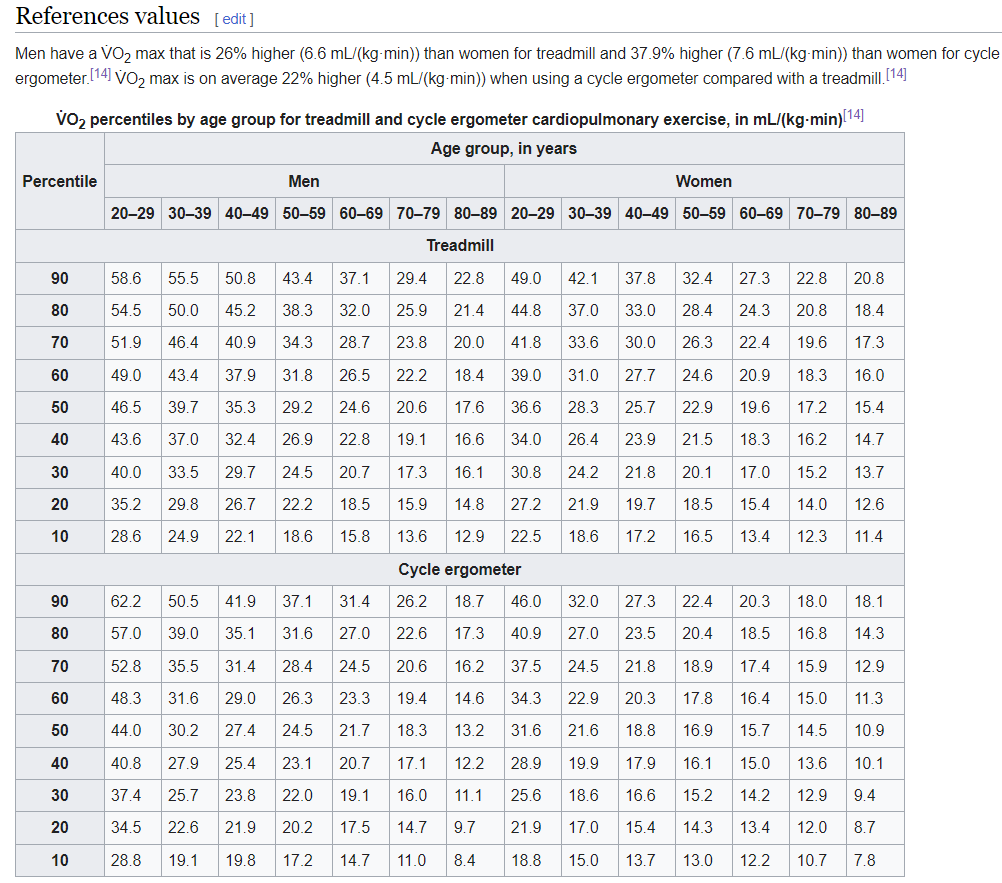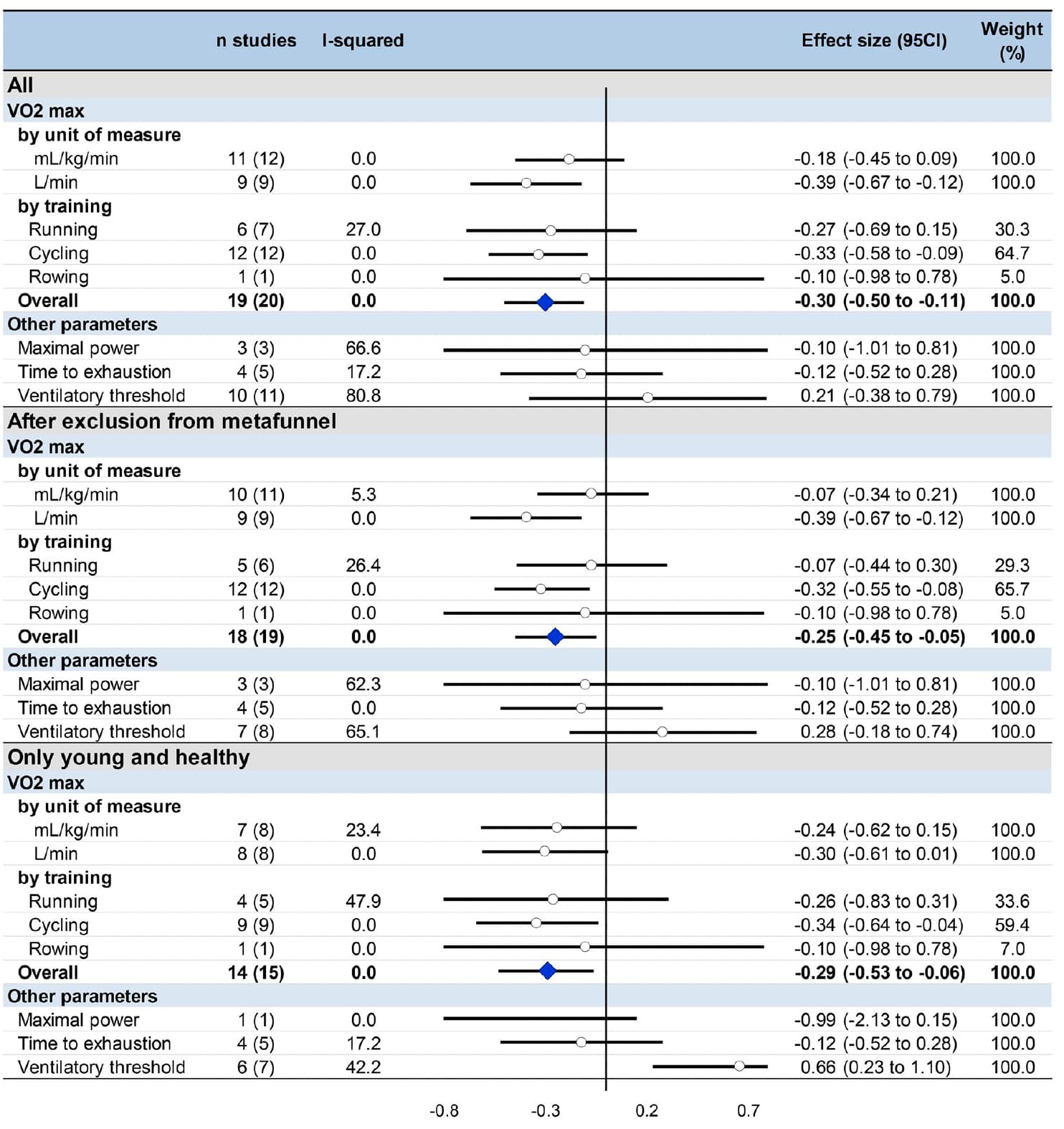***Marks comments added below.
I did a treadmill-based VO2max test today. Scored a value of 37.2. Which puts me in the 90th percentile in my age bucket. ![]() Assuming the score can be taken at face value.
Assuming the score can be taken at face value.
A decade hence, I should expect to have lost about 15-20% of what I have got now, assuming I continue a similar level of cardiovascular capacity. And that just gets me to my early 80’s. What’s that number going look like in 20, 30 years?
VO2max and healthspan: What is the minimum value required to still be considered still in a ‘healthspan’ regime, vs. just surviving?
*** Here’s where Attia and Joyner address this question: https://youtu.be/hN12iDSlFEc?t=3405
*** Joyner: 20’s to lower 30’s
*** Attia: 30-31
*** This is what they propose for a person in their 80’s. Now, how are you going to sustain that
*** for another 30-years???
Does VO2max at a high level matter? Yes.. Is average good enough…all the way to age 120? No.
What are your favorite VO2max-increasing pills and potions?
Does Bryan Johnson have the VO2max of an 18yo? (I haven’t looked.)
*** Yes, he does. But then he’s not near the age where a severe drop-off commences.
What cutting-edge start-up has a pill in phase 1 trials, that will increase your VO2max by 50% over baseline in a 26 week period?
***Here’s Joyner’s comments on pills: https://youtu.be/hN12iDSlFEc?t=6883
Just some random musings.
BTW, the basis for the above VO2max table seems a bit odd to me. It’s derived from data collected between 1968 and 2021. And the modal male seems to be like 5’ 8" and 195lbs.
https://www.mayoclinicproceedings.org/article/S0025-6196(21)00645-5/fulltext
Tacking this on because why not:

